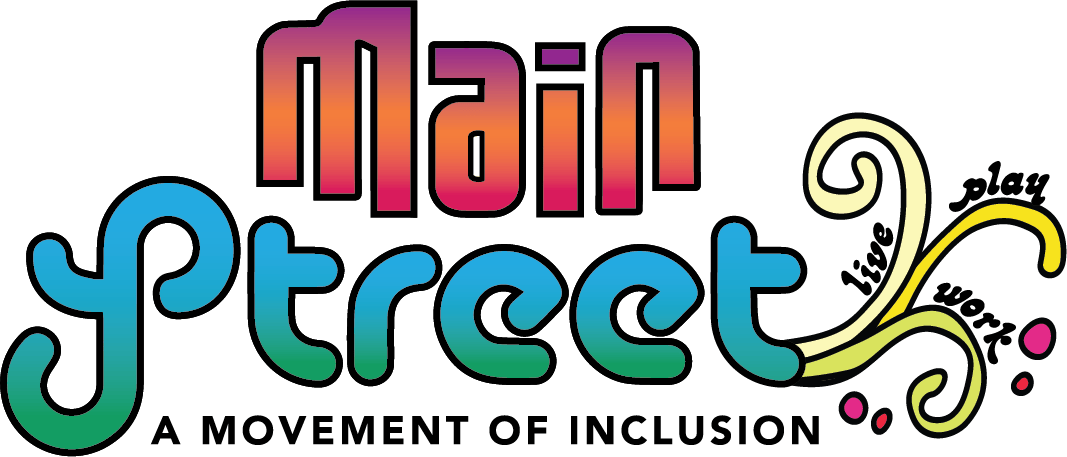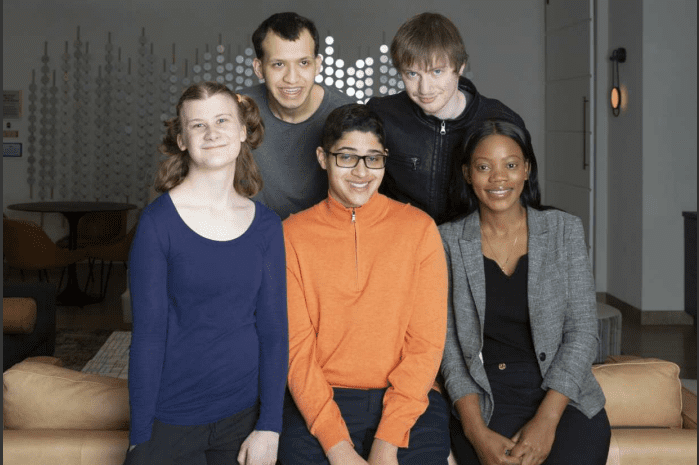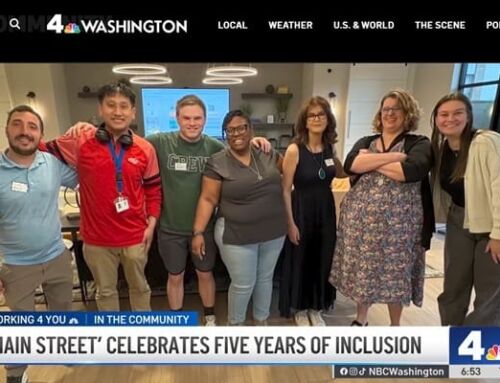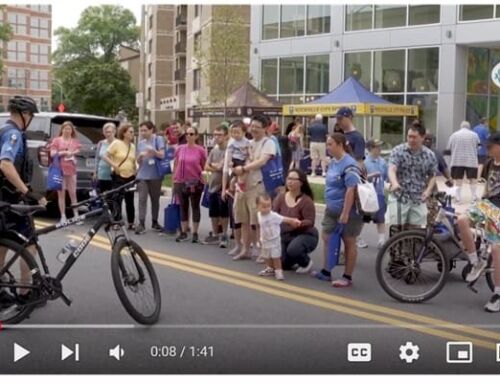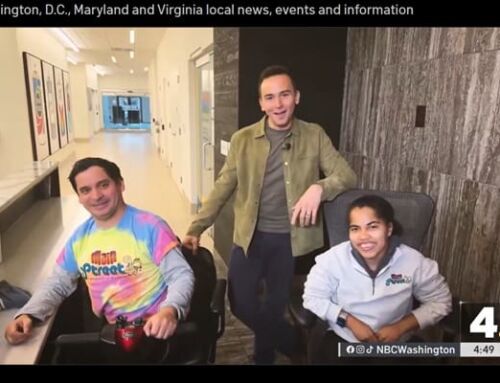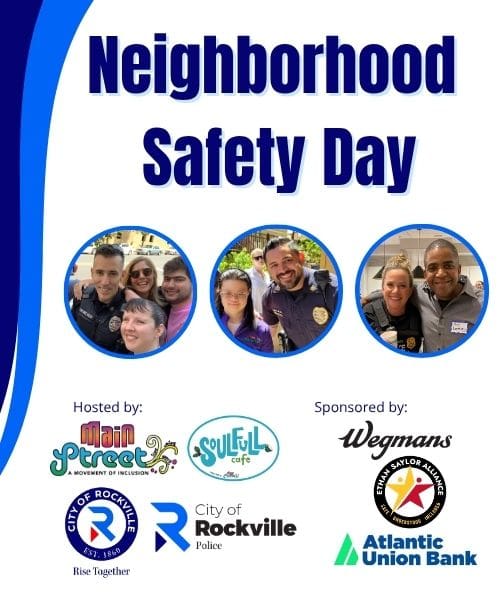WASHINGTON PARENT (March 30, 2022) – I imagine if you are reading this article, you are a parent and most likely a parent of a child with disabilities. And while the rewards and depth of love for a child with disabilities are unmatched, parenting such a child can feel incredibly lonely, not to mention challenging, at times. The highs and lows are extreme, the worries and fear can be overwhelming, and navigating the complexities as your child grows, you’ll encounter a whole new set of challenges. My son with needs is almost 23 and while things seem to be balancing, it was a pretty rough ride through these transitional years.
Here are some tips to help you through:
Mentally Prepare.
Grief comes in waves – at least it did for me. My grief hit me like a brick and although I had grieved many times over the years, this time it felt bigger, as I was not only grieving my son’s life, but my own as well. Tactical strategies and tools are super helpful. Find your support system, a good therapist and other parents who can guide you through.
Breathe.
Everyone talks about breathing, but how to breathe is pretty essential. I read the book “Breath: The New Science of a Lost Art” by James Nestor and learned how to breathe to activate my parasympathetic nervous system, which helps keep me calm. My dear friend Sarah Schain from SomoBreathe also worked with my son and I to practice our breathing, which also reduces anxiety and helps us to regulate.
Journal.
While I was in this heavy stage of grief, my therapist recommended I journal my feelings. I thought she was crazy, but I followed her advice. She was right. It was incredible, it was cathartic, it was healing.
Find Anchors of Connection and Explore Next Steps Early.
When our kids reach “the cliff,” parents do as well. Both parent and child feel an isolation from community as school professionals and communities are no longer accessible. Here are some suggestions:
- Look for future existing options. Among local postsecondary schooling options are The Ivymount’s School to Work Post High School Program (Potomac), Outcomes Service at TLC (Rockville) and College Living Experience (Rockville). TerpsEXCEED is a new program located on the University of Maryland Campus. The Arc of Northern Virginia’s Transition POINTS program (Providing Opportunities, Information, Networking and Transition Support) offers many resources. Thinkcollege.net has information for those looking for college options around the country. There are several inclusive, stimulating programs through Main Street for all adults and caregivers to continue education, movement and connection. Join list serves such as MCTransitions or MCneeds to help you learn and share your experience.
- Continue Skill Building. This is a critical time for your child, as they have lost structure and routine. Additionally, this is an opportune time to build new structures and independent skills needed for their future. Create a routine with household chores, including making grocery lists, cleaning, gardening, running errands and taking care of pets. Empower your child and be reminded that although they might not love cleaning their bathroom or grocery shopping, these are important skills: not only will your children thrive with a structured routine, they will most likely feel needed and empowered. Skills learned during school – whether social, academic or life skills – will regress if they are not practiced.
The Hard Stuff.
If you haven’t already, it is time to apply for services and/or funding, think about guardianship and set up your estate plan. None of us want to do this work – we don’t want to think about scary and hard things – but it needs to be done. Attend sessions provided by both public and private schools and learn the important steps, processes and timelines. To better understand the below agencies (and more), read “After the School Bus Stops Coming … It’s Not as Scary as You Fear” by Sari R. Hornstein, Ph.D., which is an essential tool for understanding the complexities of transition and how to move forward.
State Organizations.
- DOORS, Maryland State Department of Education, Division of Rehabilitation Services. DOORS assists individuals with disabilities with training, guidance and short-term supported employment.
- DDA, Developmental Disabilities Administration under Maryland Department of Human Services. DDA provides residential, personal and learning support.
- DARS, Virginia Department for Aging and Rehabilitative Services, Division of Rehabilitative Services. DARS offers vocational rehabilitation programs and services to assist people with disabilities to prepare for, secure, retain or regain employment.
- DDS, DC Department on Disability Services. DDS is composed of two administrations – Developmental Disabilities Administration (DDA) and Rehabilitation Services Administration (RSA) – that oversee and coordinate services for residents with disabilities through a network of private and nonprofit providers.
Legal and Financial Supports.
- It is important to find an attorney who can assist you in future planning. Many people use Shared Horizons, an organization that provides people with disabilities affordable special needs trust options, financial guidance and recommendations to trusted attorneys. Setting up your trust, determining guardianship and estate planning can take much time. While you are completing this process, I recommend MamaBear Legal Forms for quick power of attorney for the short term.
- Able Accounts are vehicles that allow adults to save money and pay for disability-related expenses, providing individuals with greater financial security.
Most importantly, Find Time for You. I have realized, especially as my kids have moved into adulthood, that I need to value and nourish myself. The old adage of putting on your oxygen mask first before you put on your child’s totally applies here. Carving out time for you to workout, meditate, read, have coffee with friends or even have a cocktail is critically important in your overall health and well-being. Trust me, your kids will thank you for it, as you will be a better you!
Lastly, know this. You can do it (although after reading this you might not feel like it)! Change is hard, but with the right tools and mindset, it can be done and will hopefully lead to a wonderful future for both you and your child.
Additional resources provided by Karen Leggett’s Transition Work Group:
- To join Transition Work Group, facebook.com/transitionworkgroup
- PACER’s National Parent Center on Transition and Employment, pacer.org/transition/
- Organization for Autism Research’s A Guide for Transition to Adulthood
- National Technical Assistance Center on Transition: The Collaborative
- Maryland Access Point
- The Community of Practice for Supporting Families of Individuals with Intellectual & Developmental Disabilities
- Charting the Life Course
- Got Transition
- Main Street Connect, Inclusive Housing and Inclusive Community Program
- Potomac Community Resources, Inc. (including their monthly Transition Times Virtual Info Sessions for families and caregivers of individuals with developmental differences – information on services and resources available in the community that are useful to transitioning youth and their families, plus their comprehensive Community Resources Directory for Montgomery County, Md. And surrounding area)
###
This was originally published at https://washingtonparent.com/tips-for-transitioning-children-with-disabilities-to-adulthood/ on March 30, 2022.
